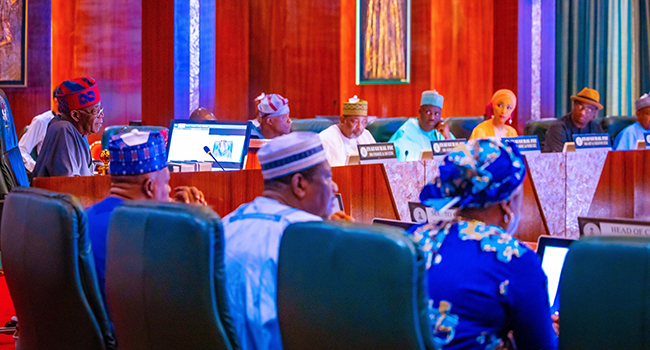- The Federal Executive Council (FEC) approves the National Clean Cooking Policy, which aims to provide access to clean cooking energy by 2030
- Ministers affirm commitment to policy implementation, including awareness campaigns, training, incentives, and regional launches to raise awareness
The Federal Executive Council (FEC) has approved the National Clean Cooking Policy to ensure access to clean cooking energy solutions for all Nigerian households and institutions by 2030.
During the policy’s launch, Minister of Environment Balarabe Abbas Lawal affirmed the government’s commitment to supporting policy domestication by implementing key recommendations, as stated by the Nigerian Alliance for Clean Cooking (NACC).
“We will conduct extensive awareness campaigns to highlight the benefits of cleaner cooking solutions. Additionally, we’ll offer technical and business training to enhance the capabilities of local producers and distributors. Fiscal and monetary incentives will also be provided to encourage local manufacturing of clean cooking fuels and technologies,” he elaborated.
Minister of State for Environment, Dr. Iziaq Kunle Salako, emphasized the ministry’s plan to organize regional and state launches to raise awareness about the policy.
“Effective implementation of the policy relies on states and local governments aligning with its goals,” he emphasized, pledging adequate budgetary allocations from the Federal Ministry of Environment.
Dr. Salisu Dahiru, Director General of the National Council on Climate Change, highlighted the significance of implementing the clean cooking policy in achieving national climate change objectives.
“Development partners have allocated substantial financial resources to support the national clean cooking goal,” he noted.
Ewah Eleri, Chairman of the Board of Trustees of the Nigerian Alliance for Clean Cooking, praised FEC’s approval of the national policy and called for collaboration among government levels, the private sector, civil society organizations, and international development agencies to combat cooking energy poverty and mitigate climate change impacts.
Eleri thanked all partners, particularly the Clean Cooking Alliance and the Heinrich Boell Foundation, for their contributions to policy development.










Discussion about this post